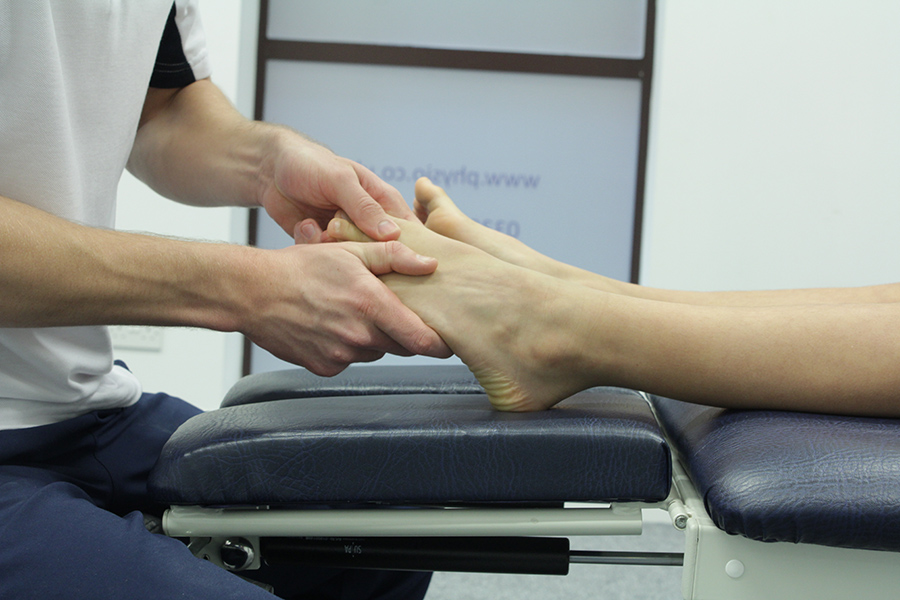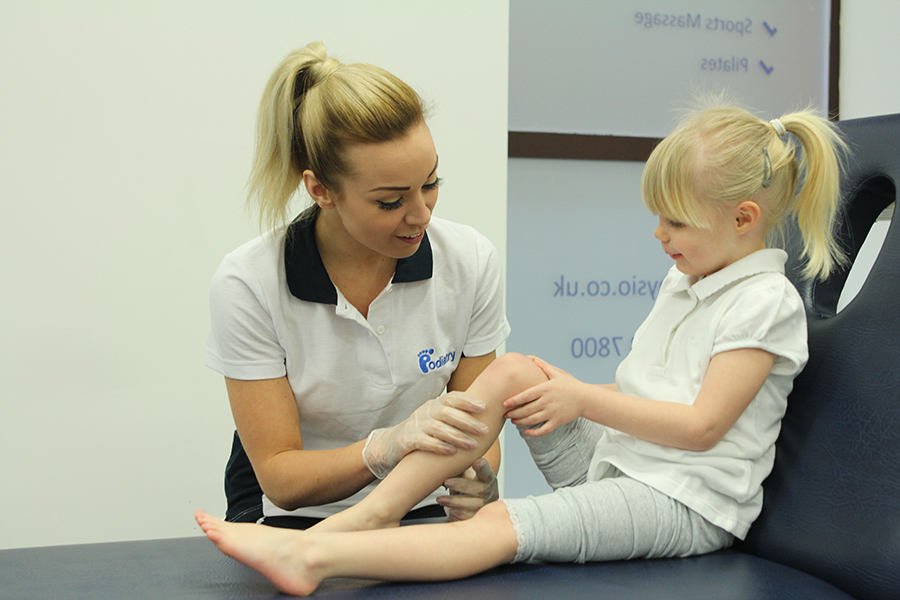Kohler's disease
Kohler's disease is a condition that is observed in small children. Kohler's disease presents as pain and inflammation on the upper inside of the mid-foot at the navicular, which is a small bone in the foot. Kohler's disease is caused by avascular necrosis.


What is Kohler's disease?
Kohler's disease is a rare condition that occurs in children aged between 3 and 7 that affects a bone in the foot called the navicular. The navicular is a small bone that is positioned midway up the foot on the inner side. Kohler's disease is caused by avascular necrosis, which results in death of bone tissue. Avascular necrosis occurs when the blood supply is cut off or reduced, in the case of Kohler's disease the blood supply to the navicular is inhibited and the bone flattens. A child that has Kohler's disease will present with a foot that is difficult to walk on and that is sore and swollen at the site of the navicular.What causes Kohler's disease?
The exact reason why Kohler's disease occurs is unknown, however, children between the ages of 3 and 7, particularly age 5 seem to be the most susceptible. Kohler's disease is a form of avascular necrosis that occurs at a bone in the foot called the navicular. Avascular necrosis occurs when a bone is starved of its blood supply, which causes the bone to die and change shape. In the case of Kohler's disease the navicular bone collapses and flattens.What are the signs and symptoms of Kohler's disease?
The signs and symptoms of Kohler's disease include the following:- Limp
- Walking on the outside of the affected foot
- Pain and soreness at the site of the navicular (middle inner side of the foot)
- Inflammation
- Child between the age of 3 and 7 (more common in boys, but does affect girls)

How is Kohler's disease diagnosed?
Kohler's disease is diagnosed based on the history, the signs and symptoms, and an examination of the foot. If Kohler's disease is suspected you may be referred for an X-ray to confirm the diagnosis.Benefits of podiatry for Kohler's disease
If your child has Kohler's disease they will benefit from podiatric intervention. The benefits that may be achieved following podiatry assessment and management include:- Reduction in pain
- Reduction in inflammation
- Improved foot function
- Improved gait
What would podiatry for Kohler's disease involve?
At Chiropody.co.uk all initial assessments begin with a history. The history is a vital component and covers topics such as social and medical history. The next stage is the assessment, which involves an examination of your child's feet and lower limbs and a gait analysis. The amount of intervention required for Kohler's disease will depend on the severity and the stage of the disease, but may involve:- Rest
- Anti-inflammatory advice
- Casting/immobilisation
- Orthoses
- Footwear review
- Advice and education
- Exercise review

Summary
Kohler's disease is a form of avascular necrosis. Avascular necrosis occurs when the blood supply to a bone is reduced; the result is death of bone. Kohler's disease affects small children, children aged 5 are the most susceptible, however, the condition is rare. A child that has Kohler's disease will complain of pain on the upper inside of the mid-foot, they may walk with a limp and will typically walk on the outside of the affected foot to avoid putting pressure on the navicular. If you think your child has Kohler's disease please visit Chiropody.co.uk for an assessment. To book an assessment with one our podiatrists please Email office@chiropody.co.uk or call 0330 088 4222.Save 5% by booking an appointment online.

Find your nearest clinic
We have clinics located throughout the North West. We also provide a home visit service.
Find out more »

No waiting lists!
Tired of waiting for treatment? Be seen by a podiatrist today!
Find out more »

Not sure how we can help?
Speak to a podiatrist to find out how we can help. Call us on 0330 088 4222.
Find out more »
We work with:

Individuals

Organisations

Health professionals
Get in Touch!
0330 088 4222
If you would like to speak to one of our specialists then please complete this form.
We are open 7 days a week








